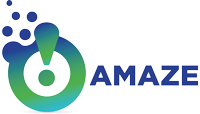
As we enter the next decade there are many technological, social and ideological changes taking place that will impact on education. Major shifts in the jobs landscape mean that it’s not only the kind of skills we learn that will alter, but also how we learn from an early age. Here we take a look at five of the biggest education trends that will impact on primary schools right through to the workplace in 2020.
Artificial Intelligence
While it’s unlikely that AI will ever replace teachers, machine-learning will help to ease some of the administrative burden. Tasks such as grading standardised tests, taking registers and record keeping can be automated, giving educators more time to focus on contact time with students. This will create more time for meaningful and thoughtful activities, such as critical writing and group discussion, which are increasingly recognised as important in the world of work. At the same time, new technology will allow for a more varied and dynamic classroom experience. By incorporating more digital media into course content, teachers can create an engaging learning experience for students. Studies show that students respond better to digital learning environments and tools that align with the way they intake information in other areas of their lives. As digital natives, today’s students need learning environments that keep pace with their information landscape.
Interactive
With the introduction of more digital media to the classroom, the teaching model is set to radically alter. Digital learning can increase the level of personal interactivity for pupils. This means moving away from the old model of students listening passively to a teacher who stands at the front of the classroom. The flipped classroom is one of the most important recent trends in higher education that is set to gain further traction in 2020. Traditionally, students have lectures in the classroom and go home with homework and assignments to learn on their own. In a flipped classroom, students do the opposite. Individual readings and educational content is delivered outside of the classroom, while activities traditionally considered homework, like group assignments, are moved into the classroom. This allows students to interact with both their peers and with teachers in the classroom to gain a deep understanding of the course material.
Individual
The widespread adoption of multimedia materials in the classroom means that we will also seeing more instances of personalised learning. Learning interactively means that students are able to better control aspects of their learning experience, such as the pace they learn at and how they best take in information. The same technology can also be used to collect information about student behaviour as they work through course assignments. This information is then used to inform tailored learning experiences that better support the needs of individual students.
Lifelong
By 2030 85% of the jobs that will exist haven’t yet been invented. This means that students must be adaptable learners in order to keep pace with rapid technological developments and changing market demands. This will mark a fundamental change in our attitude towards learning, so that it continues to be part of everyday life, rather than something that is undertaken at a particular age. In response to severe skills shortages in the UK, Matthew Fell, the CBI's chief policy director, commented: "lifelong learning is rising to the top of the political agenda". This has seen discussions taking place around adult retraining schemes and other possibilities such as a ‘skills wallet’ that’s paid into at different stages to help with the cost of continued training. There will also be more importance given to creative and critical skills in order to to align institutional learning with the increasing value these are given in the workplace.
Holistic
It’s widely acknowledged that social and economic factors can radically affect education. Poverty, neglect and even something as basic as having access to a quiet place to study all have an impact on a child’s behaviour. Schools are becoming increasingly holistic in their approach to education. While austerity cuts have negatively impacted on student welfare initiatives like nurture rooms and children’s centres, the growing need for counsellors and educational psychologists shows this to be a false economy. A recent study indicates that although the UK has improved its global educations rankings, British teenagers are some of the unhappiest. The constant pressure on students to meet academic targets has resulted in many feeling that the stakes are not only unfeasibly high, but also meaningless. Initiatives that teach children the ‘lost’ values of empathy, bravery, individuality, caring and humour will be crucial in bridging the gulf between good grades and student wellbeing.
At Amaze Umbrella we understand that teachers do a crucial job that’s also extremely demanding. To make life a little easier, we offer a friendly, streamlined and supportive FCSA accredited umbrella service that takes the stress out of getting paid for your teaching work. Speak to a member of our team today on: 0161 464 8993


